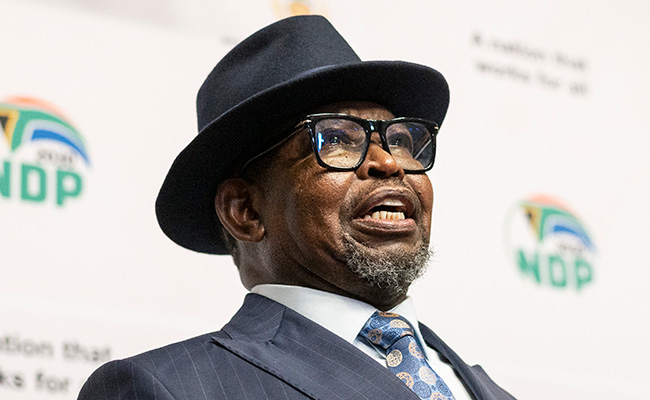Global hit show The Summer I Turned Pretty may be known as a smouldering teen love triangle. Still, it’s evolved into a full-blown cultural moment that touches on myriad topics, including credit, as the heroes come of age.
Spoiler: the show turned tense when Jeremiah revealed his secret debt to Belly – a revelation that derailed their dream of renting an apartment together.
What felt like a dramatic twist for fans is, in reality, a very familiar story: hidden debt and credit stress are quietly shaping the lives, relationships and futures of many young people.
Honesty about money isn’t just good communication – it’s a foundation for financial stability. When credit obligations are hidden, they don’t just affect an individual. They ripple out into relationships, impacting trust and significant milestones, such as buying or renting a home, applying for credit, or planning for the future.
Healthy habits build strong credit
A good credit score comes from consistent, healthy financial behaviours – small actions that add up over time. Paying bills on time, limiting unnecessary borrowing and keeping balances low are all signals that you’re financially reliable. Your score is really a reflection of the daily decisions you make. Knowing your score is the first step to taking control.
Importantly, not all credit is bad. Used wisely, it can be empowering. Credit is a tool. If it’s directed towards things that build your future self – like education, a home or starting a business – it’s an investment in your quality of life. The problem comes when it funds short-term spending without a repayment plan.
How to talk about debt with a partner
The fact that “Jere” comes from a privileged background only underlines a vital truth – no-one is immune to debt and financial stress. In fact, Eighty20’s recent report shows South Africa’s top 5% of earners spend nearly half their monthly income on debt.
Admitting to hidden debt can feel frightening – but the alternative is worse. Secrets grow heavier the longer you carry them. By the time a partner finds out through a credit check or a rejected application, the damage to trust is far greater.
Here are a few guiding principles for opening up:
- Choose honesty over perfection – you don’t need to have all the answers before sharing. Simply acknowledging the debt is a decisive first step.
- Pick the right setting – create a calm, private space, free from distractions or pressure, in a neutral environment.
- Share the why – explain how the debt came about, what you’ve learnt, and what steps you’re already considering to address it.
- Frame it as teamwork – emphasise that you want to tackle it together, not burden them with it.
- Be ready to listen – give your partner space to react, ask questions and share their own financial realities.
When you’re the one with the debt, the temptation is to wait until you’ve “fixed it” before saying anything. But the truth is, relationships are built on shared realities, not polished versions of ourselves. By sharing, you invite your partner into the solution rather than shutting them out of the problem.
Practical steps to take
Sanlam’s annual credit confidence index found that about 165,000 millennials are spending more than half of their monthly income servicing debt. Jeremiah’s fictional struggle mirrors a real question many young South Africans may be asking: “What if I’m already in too deep?”
Credit scores aren’t permanent markers – they can be turned around.
Here’s how:
- Knowledge is power – know every debt, interest rate and repayment term. List it all in one place – there are many online options, like the Sanlam Credit Solutions dashboard, that can do this for you.
- Pay on time, even the minimum – missed payments can damage scores more than high balances.
- Choose a strategy – some people tackle high-interest debt first to bring down the most expensive balances quickly. Others use a snowball approach, paying off the smallest debt to free up capital for the next-smallest debt. Pick your path and stick to it. Consider a credit coach to guide your decision-making.
- Limit new borrowing and seek help – avoid applying for new credit until your profile stabilises.
- Consolidate where sensible – rolling multiple debts into one lower-rate facility can simplify repayments and reduce stress. This could include opting for debt counselling, which can help consolidate your debt while also giving you professional support and guidance to manage it effectively.
- Track your progress – monitoring improvements keeps you motivated and helps you spot issues early.
You can improve your score – it takes discipline and time, but every positive step you take, from paying on time to reducing balances, is a signal to your future self and to the system that you’re moving forward.
What Jere’s storyline shows us is that money secrets don’t stay hidden forever. Being proactive – knowing your credit score, talking about debt openly and using credit as a purposeful tool – isn’t just about numbers. It’s about building trust, protecting your dreams and securing the freedom to say “yes” to life’s milestones when they come along.
Afua Darko is head of business at Sanlam Credit Solutions, driving the growth of its digital platform that helps South Africans take control of their credit and financial wellbeing.
Top image: Rawpixel/Currency collage.
Sign up to Currency’s weekly newsletters to receive your own bulletin of weekday news and weekend treats. Register here.












